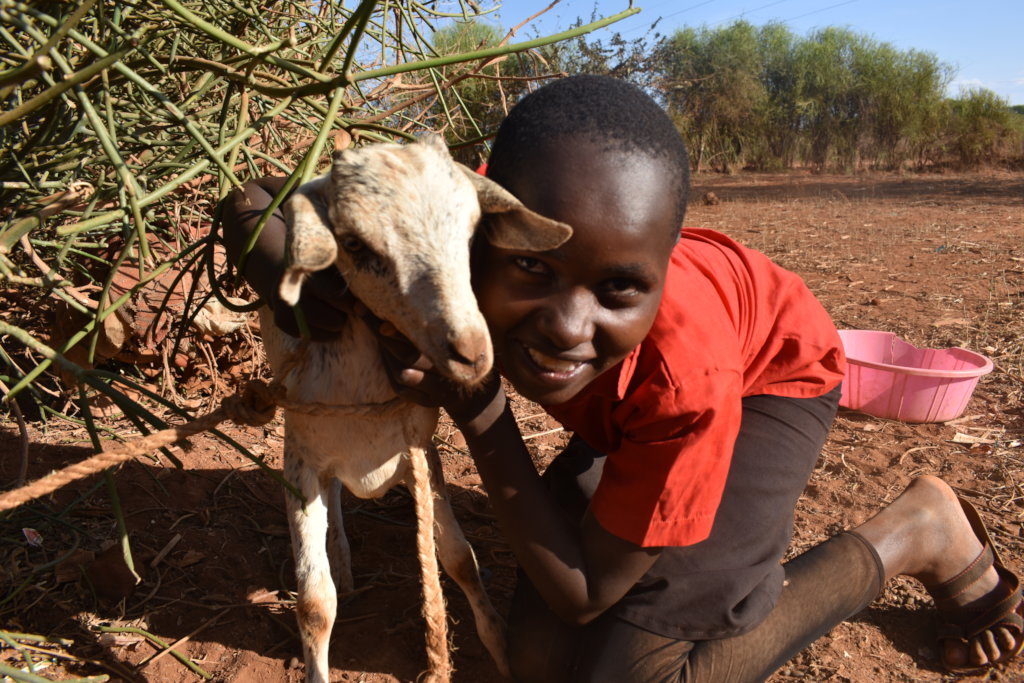By Diana Richardson | Executive Director
This holiday season, we are hoping to give each of our children living with HIV a goat to help boost their immunity and keep them healthy. With a suppressed immune system, these children desperately need the calcium, protein and other rich nutrients found in goat milk to help maintain healthy nutrition. This proper nutrition then allows the anti-retroviral medications to help the immune system adequately respond to the viruses and ailments that the kids are exposed to. A Galla Goat produces at least a litre of milk a day. This is more than enough for the infected child, and in fact is sufficient for up to four people daily.
The goat will be a pregnant Galla Goat. The Galla goat is an indigenous to Northern Kenya. It is also known as the Boran or Somali goat. It is the milk queen of the Kenyan arid and semi arid areas. The guardian and child will receive husbandry training on how to properly care for the goat. An educational workshop on effective animal husbandry for raising goats will be facilitated by the Kenyan Department of Agriculture (one of the ministers is on the Kenyan Board of Directors for Makindu) to all recipients.
We have utilized the expertise of the Kenyan Department of Agriculture to determine the education necessary for our population to properly care for and breed goats in a humane and sustainable fashion. Our family guardians meet monthly in groups, and the groups will be asked to identify which families need more support with raising, breeding, or tending the goats. The children of MCC and their adult guardians will herd, feed, nuture and milk the goats, giving them skills training and productive activities in their communities. The goat's milk provides necessary nutrition and expands our food support services to the families. Training the local guardians in marketing cheese and excess milk to the neighboring area will helping to sustain the families in this program and provide further self-sufficiency. The local families have identified that goats are more economical at this point to raise than chickens, because the local prices for grain-based poultry food have risen beyond the reach of affordability for our families. Goats are able to forage independently on the natural resources of the area.
Beyond possibly saving the lives of these vulnerable infected kids, providing goats will help establish more nutrition security for everyone in their households as well as increase their self-sufficiency.
$65 buys the gift of nutrition.
$65 buys a goat for a child.
$65 brings joy to a child this holiday season.
Project reports on GlobalGiving are posted directly to globalgiving.org by Project Leaders as they are completed, generally every 3-4 months. To protect the integrity of these documents, GlobalGiving does not alter them; therefore you may find some language or formatting issues.
If you donate to this project or have donated to this project, you can receive an email when this project posts a report. You can also subscribe for reports without donating.
